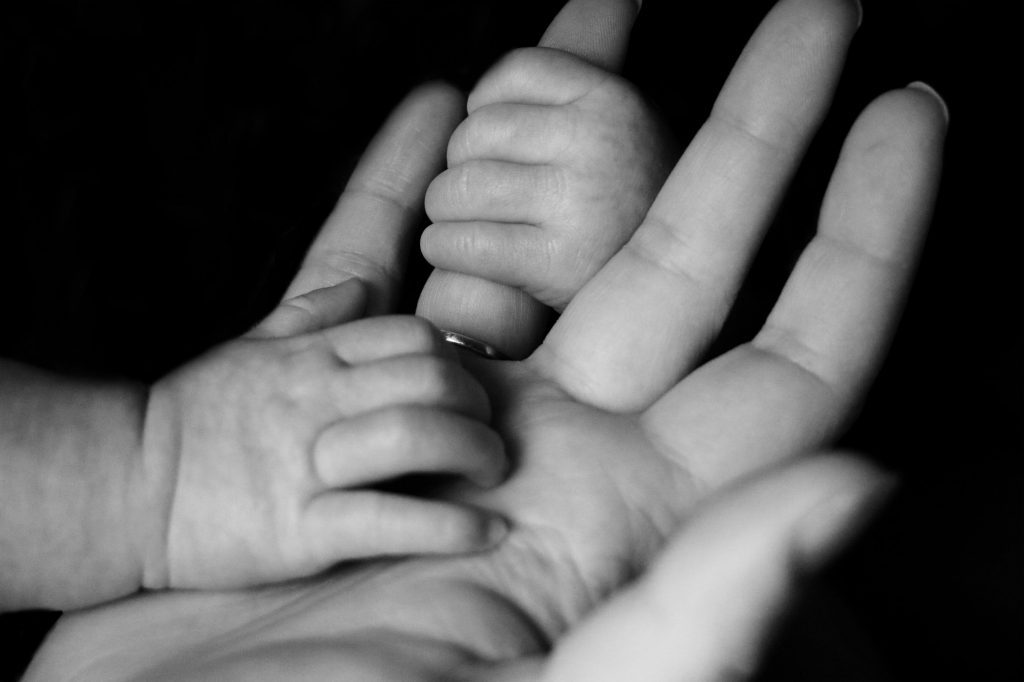Parenting is no easy feat, and new parenthood is often a confusing time. Filled with uncertainty, it can be difficult to navigate through without adequate guidance. On the other hand, it’s also a beautiful time filled with new moments and milestones. For all the first-time parents, parenting often seems like a unique struggle, which it is in many ways. However, the anxiety and doubts about your own parenting skills are universal feelings that all new parents encounter. Here are ImmunifyMe’s ten tips for first-time parents that you should know before taking on this monumental journey.

Parenting is a journey of ups and downs, and mostly, of learning and growing.
Tips For First-Time Parents
Do Your Prep
While nothing can prepare you for a child as well as childbirth itself, it always helps to be as prepared as possible. If you’re expecting your little one to pop out soon, there are certain tasks that you must do. Start to read as many parenting books as possible, create a birth plan with your partner, find a pediatrician, and more importantly, communicate your needs.
On a more practical note, pack your hospital bag in advance with all your required necessities, and keep baby products ready at home. You can also try connecting with other new or expecting parents. Each parenting journey comes with its own set of challenges and breakthroughs. But, talking to new/expecting parents will help you widen your horizon of expectations. This, in turn, helps you prepare for problems you could have been previously unaware of.
Expect Stress
Welcoming a child into your life is pretty much one of the biggest transitions you can make. Trust us when we say it cannot get more life-changing than that! It affects everything from your sleep schedules, diets, mental and physical health to your relationship with your partner. And sometimes, no amount of intense preparation can truly prepare you for how all-encompassing new parenthood really is.
It is always better to sit down (with your partner) and mentally prepare for the transition. Expecting and anticipating stress in all facets of your life will make you slightly more relaxed and enable you to relinquish control over the things outside of your grasp. It will also help you see this journey as the marvel it is, rather than an anxiety-inducing, stressful process, which it might sometimes seem like.
Remember that it is perfectly normal to experience stress and doubt your own abilities in these times. These fears don’t make you a lesser parent, it just makes you a normal one!
Build A Community
This is one of those tips for first-time parents that will almost always help you to feel better. Revive and maintain bonds with new/expecting parents in your family, friend circles and/or neighborhood, or join parent groups online or offline! Bond over your experiences and create a safe space. It will enable you to share your burdens and joys with other people in similar situations and take part in their moments of happiness and weakness.
It is not rare for new parents, especially new mothers, to feel isolated and helpless in this journey. Knowing that there are others like you that you can count on, be it for baby food advice or babysitting, might make you feel connected and more capable.
Set Aside Some Time For Yourself
With the entry of a new baby into your household, you might feel completely controlled by your little one. Your body and mind will feel like they’re always tuned in to every demand or cry of the child. While it might seem next to impossible, try setting aside a small part of your day for yourself.

Taking even a few minutes of time daily to do some yoga can help you feel better.
Keep even a half-hour while the baby is asleep or being tended to, and use it to reconnect with your past self. In this time, do what pre-baby you would have done; read, paint, use social media, etc. Some light postpartum exercising can also help a new mom feel physically and emotionally better. Birthing a new baby does not have to mean a complete loss of your personality and interests. As you grow into a new parent, don’t allow yourself to lose sight of what you are truly passionate about.
Postpartum Stress
Apart from physical, postpartum recovery also involves a lot of mental and emotional changes. Studies show that 22% of new mothers in India experience some form of postpartum depression. And what is a cause for concern is the fact that even in 2021, an upsettingly small percentage of people are aware of this form of depression. Postpartum depression, in minor cases, might manifest in new mothers as deep anxiety, detachment, and the feeling of being a bad parent. In its worst forms, it could lead to suicidal tendencies, postpartum psychosis and severe mood disorders.
If you or your partner experience symptoms of postpartum stress or depression, realize that you are not alone or unworthy of parenthood. Other mothers and fathers also go through some form of it after childbirth. Don’t fall into the trap of societal stigma, and seek the help of psychological professionals as early as possible for a healthy, happy recovery.
Don’t Fall For Comparisons
While bonding with other parents might make you feel like you can take on this journey, sometimes it might lead to feelings of inadequacy and harsh judgment. In India, childbirth can sometimes be more of a societal phenomenon than a personal one. Everyone – from relatives to strangers – feels entitled to give their unsolicited opinions and judgment. Giving in to this and comparing your parenting or your baby is one of the mistakes new parents make unknowingly. You must realize when to take help and when to step away from it.
Your child is a unique human being whose physiological and mental developments are subjective and distinctive. Though there are broad developmental milestones you can track, your baby will develop at their own rate. Don’t be peer-pressured into forcing milestones or into feeling like you are bad parents. You have your parental instincts, and your pediatrician has health records and growth charts to help you. As long as you trust your gut and rely on a dependable pediatrician, you ought to be good!
Accept Your Occasional Ignorance
There is only so much knowledge that books and documentaries can impart. The process of new parenthood is one of discovery, both of yourself and your baby. It works with trial and error, confusion, and wisdom that can only come with experience.
Accept the fact that you are, and can never be, fully equipped for parenthood. Every day poses a new obstacle and every day you learn something new about your child. As your child evolves and grows every day, so do you, as parents. Never feel shame in accepting help when you need it. Remember, it takes a village to raise a child.
Take Care Of Yourself Too
Remember that you are as worthy of care as your baby is. This is a monumental change in your life and you are doing the best you can. Feed yourself healthy, protein-rich food, and try to get ample sleep. Try to also maintain a sense of control over your personal hygiene and mental health. While you are going to have good days and bad days, realize the need to be vocal about your concerns to your partner.
Maintaining clear, compassionate communication with your partner is important, as parenthood is something that affects your dynamic with them too. Try to spend time with them, attend to their needs and include them in the positives and negatives of the journey.
Be Part Of The Miracle
Sometimes the strain and pressures of new parenthood might lead you to forget the true magic of creating and parenting a child. It is a time infused with hope and joy and expectations for the future, and your child is the blossoming star of it all. Realize that while the days are long, the years are short. That while it may seem like a challenge to look after a child and keep it safe, they are, one day, going to grow out of your care and not require it any longer.
Be free with your affection, both to your little one, to yourself and to your partner. Actively take joy in the big and small milestones, and celebrate the beauty now added to the world, simply owing to you and your baby.

It’s important for you as a parent to be present, and not let the worry overcome you.
Maintain Accurate Records
A large part of new parenthood is vaccinating and protecting your child. This challenge is made easier by maintaining proper, detailed medical records of your child. Your infant will get a series of vaccines within the first year itself, right up to their teenage years. These vaccinations are essential, immunizing them against life-threatening viruses and diseases.
But just as important is maintaining an accurate immunization record. This ensures that they don’t skip appointments, take double vaccinations, or miss out on booster shots. Maintaining a child immunization record can be tricky, especially when you have so much else to do. We recommend downloading the ImmunifyMe app, which provides vaccination reminders and real-time vaccination monitoring, making your job a lot easier!
Conclusion
These 10 tips for first-time parents are far from the only help you’re going to need. Just remember that at the end of the day, parenting is a journey of growth. You’re going to learn from your mistakes and grow into parents just as your child will grow into adulthood. Remember to turn to family and your pediatrician to take the edge off parenting. You can also get some added help by downloading the ImmunifyMe app. With features like customized nutrition charts, milestone tracking, and digitized immunization records, you can get some much-needed help.
FAQs On Tips For First-Time Parents
What Are Some Tips For New Parents?
Tips for first-time parents include practical things like reading parenting books, as well as other tips like acknowledging negative feelings and being more present as parents. First-time parents can get overwhelmed more than experienced parents, so it’s important for them to take time out for themselves whenever possible, and communicate honestly with their partners.
What Are 5 Tips For New Parents To Help Soothe A Newborn Baby?
One of the most important tips for first-time parents is to not panic whenever their baby starts crying. They must remain calm and do things like checking on the baby’s needs to see if the baby is hungry, uncomfortable, or needs a diaper change. Additional tips to soothe a newborn are to try distracting them, provide comfort by rocking them, create a calming environment, and ensuring the baby isn’t feverish or ill.
What Do First Time Parents Need To Know?
First-time parents need to keep in mind that their feelings of isolation and struggle are shared by all new parents and that they’re not alone. They also should know how to check if their baby is crying because a need isn’t fulfilled or because they’re ill. Finally, they need to know all about the baby’s vaccination schedule and appointments.
What Is Some Good Baby Advice?
You can never have the best possible baby advice to turn you into the best parents, and that is the truest baby advice to give. No parent is perfect, but as long as you trust in your pediatrician and follow your gut, you’ll do well by learning on the job.






